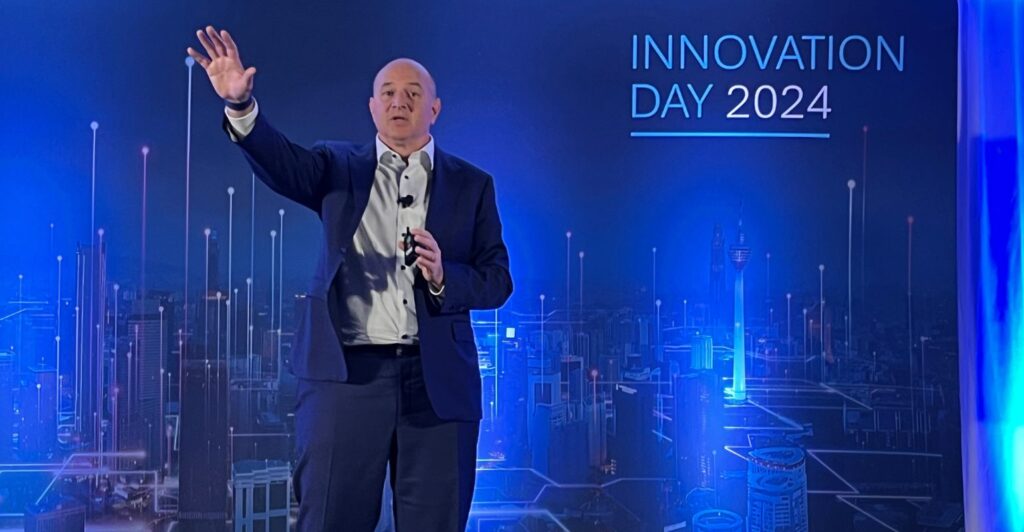It’s been a challenging few years for Zebra Technologies, an Illinois-based company that designs and manufactures a wide array of products and services used in grocery stores and other retail operations.
But the company, which runs 122 facilities and employs nearly 10,000 people across the globe, got some good news in late May with the announcement that it completed its private offering of $500 million in unsecured notes.
The proceeds of $492 million will be used to repay outstanding debts of $172 million, Zebra said in a May 28 filing with the Securities and Exchange Commission. The remainder will be used for “general corporate purposes, including to replenish cash on hand following repayment of its receivables financing facility…”
See the video:
The company, which manufactures mobile computers, barcode scanners, radio frequency identification devices (RFID), and more, noted in its 2023 annual report that it faced global cost inflation headwinds, rising interest rates, and a strong U.S. dollar “which have negatively impacted our current year results.”
“As the year progressed, we experienced a broad-based decline in customer demand across our core product offerings. Demand declines were most pronounced in our mobile computing and printing businesses …” the company noted.
Net sales declined in 2023 to $4.58 billion compared to $5.78 billion the previous year, and operating income dropped about 9% to $481 million from 2022. Net income experienced a year-over-year decline of 36% to $296 million, or $5.72 per diluted share.
In the first quarter of 2024, Zebra continued to face challenges, but the company’s financial results improved from the fourth quarter of 2023, due in part to a 16.5% increase in revenues quarter over quarter.
“Total net sales decreased $230 million or 16.4% compared to the prior year reflecting declines in both of our segments primarily due to continued softness across our end markets in all regions,” the company said in the Q1 2024 report.
In mid-May, Supermarket News visited Zebra Technologies’ headquarters in Lincolnshire, Ill., for its Innovation Day event which showcased some of the company’s newest innovations, such as its self-checkout technology that uses computer vision to reduce theft.
See the video:
Zebra Technologies CEO Bill Burns said in an interview following the presentation that self-checkout is having a moment — some of the biggest retailers in the country like Dollar General, Walmart, Target, Safeway, and others, are pulling back on the technology, frequently citing shrink as the culprit.
“Self-checkout is a key to many of our customers, despite the fact that there’s a bit of noise around it right now,” Burns said. “I think the key is, how do you get people through self-checkout faster?
“I think it’s interesting because in Europe, it’s all about self-scan. All European retailers use a handheld device; the customers come in, they use their customer card or their loyalty card, then they scan their own groceries and use their own bag, and in the U.S., it’s just never taken off here.”
Self-scan evolved differently in the U.S. because many stores don’t have a loyalty program and many don’t want one. “So people would grab the self-scanner, go do whatever they want in the store, and then there was a loss prevention issue associated because they didn’t pay until the very end with a credit card.”
That led to less diligence in determining that all products had been scanned, because many stores were unaware who the customers were until they reached the point of checkout.
Other U.S. stores tried allowing customers to use their own mobile device through an app as they filled their baskets, but that also posed a problem, according to Burns.
“I think what failed there is customers want to use their phone for other stuff,” he said. “They want to text, you know, someone at home saying, ‘Hey, can you go check if we have Cheerios?’ They want to listen to music. They don’t want to use their device to scan in the supermarket.”
In his Innovation Day presentation to investors, Burns said the company’s position as a leader in mobile computing, scanning, and printing presents opportunities for Zebra to capture emerging markets.
Those expansion areas, for instance, include Zebra’s retail software leveraging its mobile device technology, Burns added. Machine vision, fixed industrial scanning, and robotics are also areas of expansion and new areas of investment for Zebra, he said.
The tech company’s core business combined with adjacent expansion markets is “going to drive our 5% to 7% growth,” Burns concluded.


